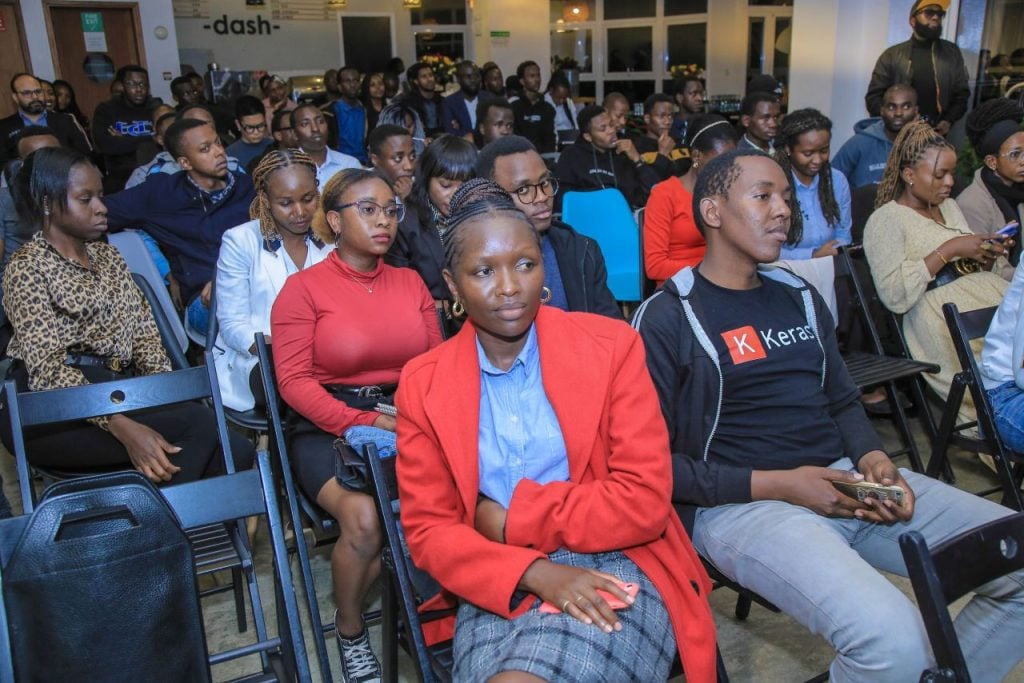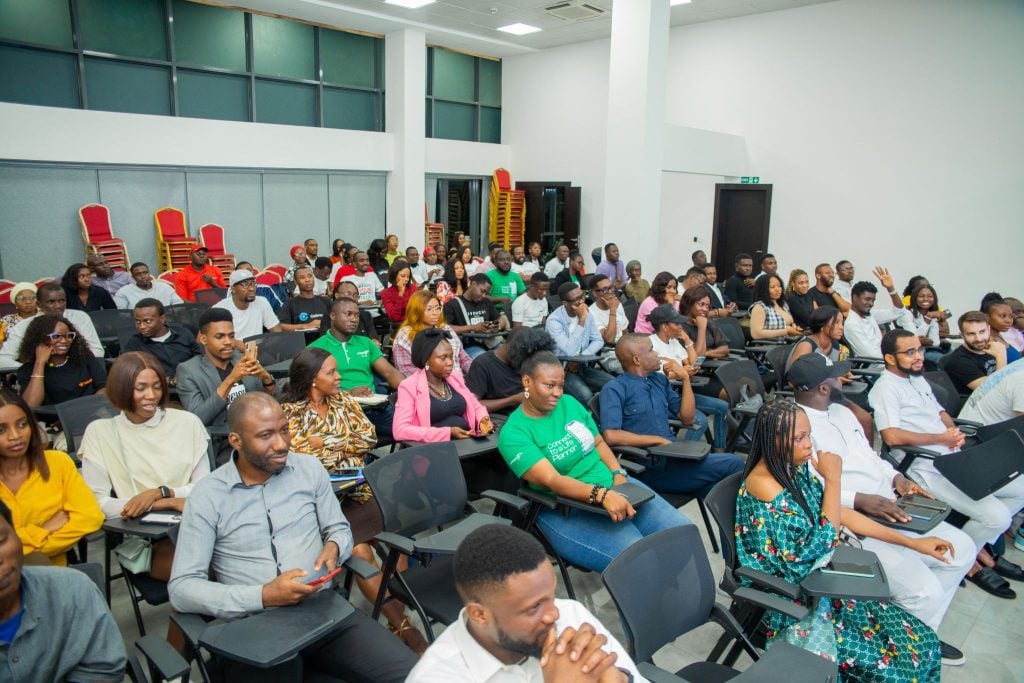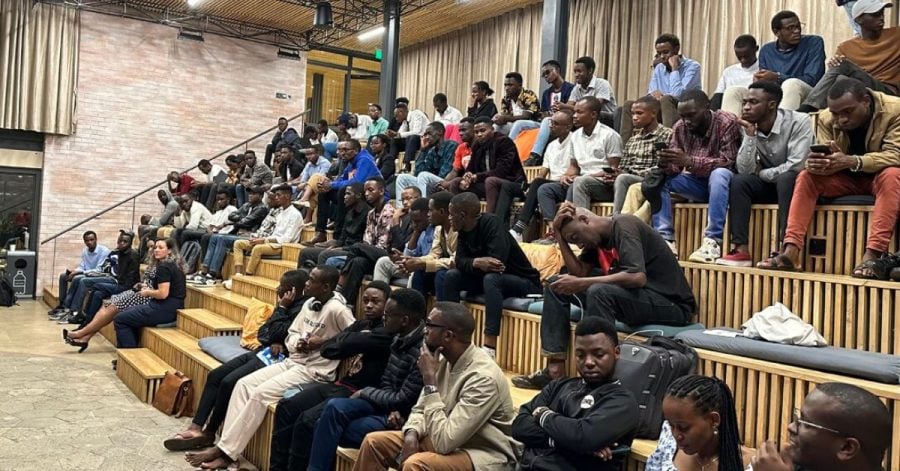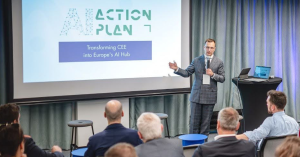Albeit with a lesser-known tech landscape compared to the likes of the US and Western Europe, during the last decade, Africa has surprisingly become one of the top destinations for seeking developer talent for companies from Central and Eastern Europe (CEE).
Among them is Croatian unicorn and global communication services provider Infobip, which has been a key player in Africa for over a decade. With a solid presence in nine African countries, the Croatian company has been tapping into the potential of Africa’s developer ecosystem during the past years.

“Africa’s developer ecosystem is growing due to the big need for developers. A significant number of developers are hired by big tech companies. Also, many developers in Africa are starting their own startups as the opportunities for investment and scaling of their businesses have increased in the past couple of years,” Infobip’s tech community manager Marijan Cipcic tells The Recursive.
Additionally, Europe’s need for software developers exceeds its local supply, which in turn leads to a surge in demand for technical experts in regions such as Africa, whose young and tech-savvy population is poised to fill roles at global companies to meet this demand.
Apart from this fact alone, Infobip’s ties to the continent also go deeper, as their services have been used by key African businesses during the past decade. “The communication services of Infobip are used by Africa’s largest telecommunications companies, banks, fintech companies, and numerous other big tech-oriented companies,” Cipcic adds.

According to a report by The Disrupt Africa team, 633 African startups secured even more than 3.3 billion dollars in investments during 2022, and the total annual funding of African tech startups has grown by more than 1,700 percent since 2015.
“We’ll see what the numbers for this year are, but this report speaks for itself about tech ecosystem growth in Africa in past years. With the growth of investments in startups, the number of developers and the quality of their skills is also growing,” Cipcic tells The Recursive.
Another report, the 2021 Africa Developer Ecosystem showed that 38 percent of Africa’s more than 700 thousand developers work for at least one company headquartered outside Africa. About 50 percent of them are concentrated in five key markets: Egypt, Kenya, Morocco, Nigeria, and South Africa.
The report also reveals that African developers are still very young, with junior developers making up a large portion of its base. Many of them use a mix of both formal and informal education to gain the necessary skills, with JavaScript, Java, and C++ being the most in-demand programming languages.
When it comes to tapping into local talent, one of the main approaches that the Croatian company has adopted is through its engagement and in-person meetings with local developers and startup communities.
“Since the Developer Experience department was established in Infobip a few years ago, our mission is to become a developer-centric company on a global level. As an upgrade to Infobip’s presence in Africa, since last year we have focused on engagements with the local developers and startup communities as part of our Developer Experience (DevEx) initiatives on a global level. In the last 12 months, we organized 15 in-person meet-ups in Lagos, Nairobi, Abidjan, Accra, Cairo, Kigali, Casablanca, and Kampala. In some of those cities, we had multiple events,” Cipcic tells The Recursive.
The potential of Africa’s tech ecosystems
A Google 2021 report also shows that the following countries have the highest concentration of software developers: South Africa, Egypt, Nigeria, Kenya, Morocco, Algeria, Tunisia, Cameroon, Ethiopia, and Ghana.
As seen from the list, Nigeria is one of the top destinations for developer talent, with a developer community that has been growing steadily. Fuelled by a rising demand for tech skills, the country is producing 5,000 new developers each year, marking a significant expansion of its tech workforce.

With a strong presence in Nigeria, Infobip is convinced that its initiatives will help further develop and strengthen the continent’s developer and startup ecosystem.
Additionally, the Croatian company’s efforts go beyond mere meet-ups, as it actively sought collaboration with organizations such as the Yabacon Africa Community in the Nigerian capital of Lagos, providing support to local developers and tech enthusiasts.
Furthermore, sponsorships of major events like DataFestAfrica further helped the company tap into local talent. The company’s Developer Experience (DevEx) program in Africa was also recognized as the best regional developer relations program at the Devrelcon Conference 2023 in London, together with the award for the best DevRel program overall for 2023.

“During our meet-ups, attendees also have the opportunity to learn about our Infobip Startup Tribe, which helps startups around the globe grow. Our Startup Tribe grows after each meet-up, and we are happy that our technology can help local startups scale their businesses. So far, 45 startups from 17 countries in Africa have joined our Startup Tribe Programme,” Cipcic adds.
The company’s activities in Africa have also served as a bridge for companies from Croatia that want to enter the African market, with tech startups such as Oradian and venITure already being present on the market.
“Local developers and tech enthusiasts have a chance to meet, interact, and hear from successful and inspiring speakers. Networking sessions at our meetups are also very important since attendees meet and exchange valuable contacts and knowledge with each other,” Cipcic explains.
As Richard Gardner, CEO of US tech company Modulus Global further points out, Africa’s rise in the tech world is drawing attention, and many other global tech companies will eventually seize the opportunity to tap into the continent’s vast developer talent.
The e-Conomy Africa report further shows that countries such as Rwanda and Uganda have invested in science, technology, engineering, and mathematics (STEM) education programs to prepare their workforce for the digital economy.
“We’ve seen countries like Ghana begin to invest in tech, and those kinds of investments can pay dividends over the long term. It isn’t surprising that more firms in Central and Eastern Europe are looking to Africa for developer talent.” Gardner concludes.








